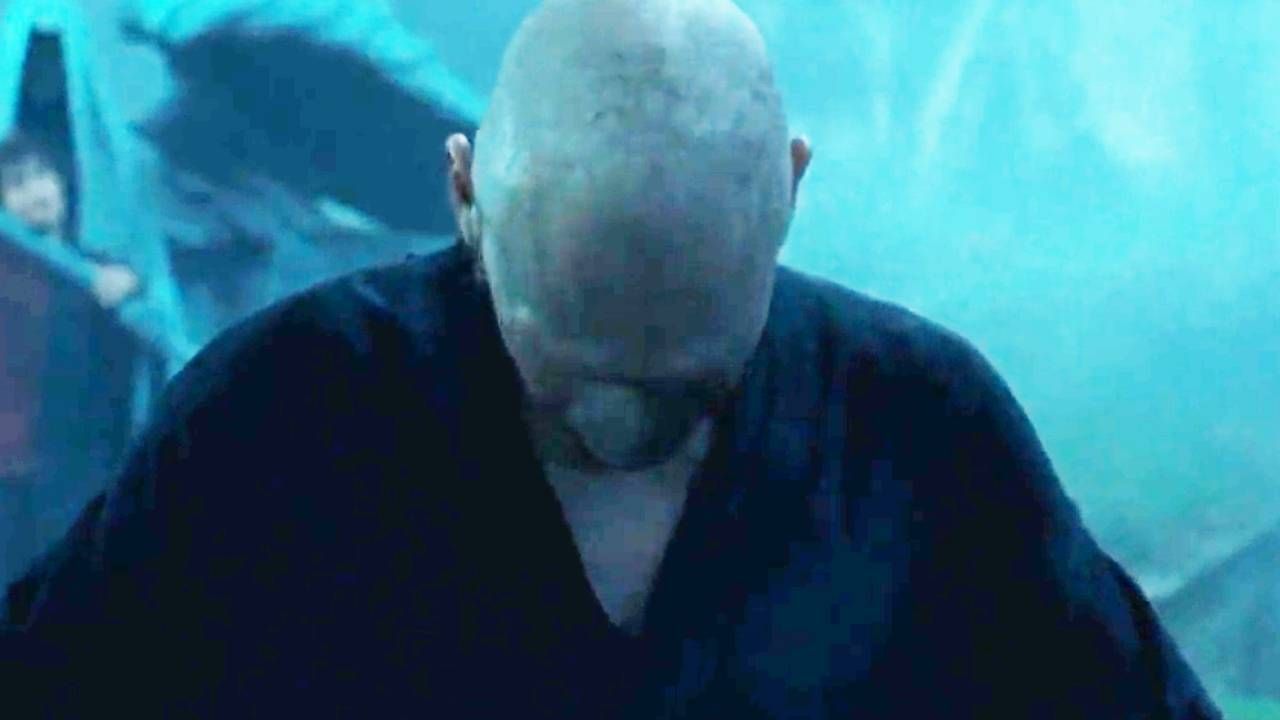Have you seen the current Netflix series? I take this opportunity more to discuss mental health.
Have you seen “Baby Rena”, the current series on Netflix? I take this opportunity more to discuss mental health. I would like to say that to explain what happens to Martha and Donny, the central characters, I will have to give some spoilers that may affect your experience while watching the episodes. If so, save the text to read later.
The series, based on a true story (true crime), tells the complex relationship between the aspiring comedian Donny Dunn (Richard Gadd) and the non-lawyer Martha (Jessica Gunning), who begins to persecute the actor. It all starts when she enters the place where she worked as a bartender, and Donny, realizing that the girl isn’t well, decides to be kind and offer her a drink.
This small gesture of attention is enough for Martha to begin to believe that he is interested in her, she immediately falls in love and begins to court him tirelessly, sending over 41 thousand text messages and 350 hours of answering machine, over 700 tweets, hundreds of pages of letters. Nothing is an obstacle for Martha, who goes beyond everything and everyone to be close to Donny, despite having aggressive and violent attitudes. It’s worth mentioning that Gadd himself experienced the situation he wrote and played in “Baby Reindeer.”
How to formulate diagnostic hypotheses
Over the course of the episodes, the viewer discovers that Martha is an emotional time bomb, ready to explode at any moment, and that she had already experienced the same pattern of behavior in previous relationships, stalking and tormenting her targets, even getting condemned criminally.
It is always risky and superficial to guess the diagnosis of someone depicted on screen, even if the character represents a real life. Nothing replaces a thorough mental examination and a careful psychiatric evaluation, the best resources psychiatrists and psychologists have for formulating hypotheses.
Unlike physical illnesses where a blood test or imaging technique can make a diagnosis, in psychiatry it is the clinical history, family accounts and the impacts that thoughts, behaviors and emotions have on the person’s life that guide medical reasoning and therapeutic. And often, even after months or even years of monitoring, the professional may have difficulty reaching a conclusion. Despite these limitations and with these reservations in mind, let’s venture a few hypotheses.
Martha
Martha presents notable emotional fluctuations, low frustration tolerance, idealization and adoration alternating with anger and hostility, difficulty controlling impulses, she is egocentric, self-referential, has explosive reactions and aggressive behavior. All these manifestations can constitute a borderline personality disorder.
But Martha’s obsessive passion and Donny’s unrealistic perception (even after countless denials and limits placed by him) bring us closer to another diagnosis, erotomania or Clèrambault syndrome, a delusional disorder in which the person believes that someone, generally of higher status (richer, more important, more beautiful, more attractive) or a public figure is in love with her.
The delusion persists even when it is clear that the other person is not interested in the slightest. Stalking, sending gifts, writing countless emails, invading other people’s lives, trying to devalue or belittle the victim’s friends, family and emotional relationships are some of the symptoms. Erotomania is more common in women between the ages of 30 and 50, who live more solitary and isolated lives.
Interestingly, the two diagnoses are not exclusive. Just as someone can have diabetes and hypertension at the same time, BPD, erotomania, and even depression can coexist. Martha does not lose touch with reality (she is not psychotic), although she sometimes gets carried away by false beliefs and distorted interpretations of Donny’s answers.
In the end, the viewer learns that Martha had a difficult childhood, with episodes of domestic violence, and that her comfort was hugging a small stuffed reindeer, hence the “affectionate” way in which she addressed Donny, the person who loved her. he brought the fantasy of welcome and, perhaps, hope into life.
Donny
Donny’s passivity, complacency, and reluctance to go to the police despite Martha’s subsequent invasions of privacy command attention. If she sometimes recognizes the risks and tries to avoid them, other times she seems to let them get closer. For those who are delusional, ambiguity can act as a real invitation.
As Gadd himself made clear in several interviews, he was at such a painful, vulnerable, failed, excluded, unsure of his desires place in his life that the mere fact that someone considered him special, unique, worthy of passion and ecstasy , it could have been a form of compensation.
To some extent, Donny perhaps allows and encourages Martha to get closer because he stands to gain emotionally even in this clearly abusive relationship. But encounters end up perpetuating this cycle of pain and reward. We can also think of a certain co-dependency between Donny and Martha, which provides fuel for their story to continue.
Donny has faced significant loss of self-esteem, episodes of substance abuse, depressive symptoms, anxiety attacks, self-injurious behaviors, dysphoria related to his sexual orientation, among other possible diagnoses. These conditions that already existed in his life worsened after he suffered sexual violence at the hands of an important director.
Due to the trauma, he may be suffering from post-traumatic stress disorder, post-traumatic stress syndrome, a disorder in which the person relives sensations and images of the episode, with difficulty separating what can be safe and what can be risky in relationships.
In many moments, Donny also seems to face Stockholm syndrome, in which the victim of a kidnapping or abuse, to feel safer, develops an emotional bond with his tormentor, also feeling affection and pity for him, which ends up facilitate possible manipulations by his tormentor. abuser.
-rl53ahttruxy.jpg)
We are?
The seven episodes bring so many layers of emotions that make us think and feel! First and foremost, the series brings a fair amount of angst to the audience. There is also the fear of getting sick due to some triggers such as suffering, pain, abandonment, sexual violence, among others.
Discomfort reminds us that in various encounters in our emotional life we may have already fallen into the temptation of stalking, or even been persecuted by someone who misinterpreted our responses and intentions. Abusive relationships live nearby and can hide in countless corners of our emotional lives.
The same passion, even if reciprocated, can be a moment of intense erasure of limits, of very personal interpretations of reality and of projection of one’s desires onto others and vice versa. And all this can become more intense and risky when we are not well or we meet someone who could be even worse.
It is impossible not to feel angry at Martha, but it is also difficult not to empathize with her suffering and feel sorry. Likewise, you can’t help but suffer along with Donny, but the delay in putting an end to the story also generates anger. Such ambiguous characters come closer to human reality and push us to admire them more.
Perhaps the series “sticks” so much because it is not uncommon to face similar emotional dynamics, albeit on a smaller scale, when we find ourselves in a more vulnerable phase or have to face traumatic experiences. “Baby Reindeer” talks a little about how our emotional experiences can become confusing and painful. Who ever?
*Jairo Bouer is a psychiatrist and writes weekly for Terra Você.

“Baby Rena”: who is the trans actress of the most talked about series of the moment
Source: Terra
Ben Stock is a lifestyle journalist and author at Gossipify. He writes about topics such as health, wellness, travel, food and home decor. He provides practical advice and inspiration to improve well-being, keeps readers up to date with latest lifestyle news and trends, known for his engaging writing style, in-depth analysis and unique perspectives.







